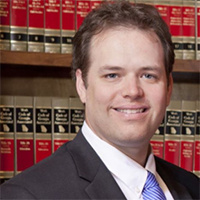Columbia County, GA Misdemeanor Lawyers
Sponsored Law Firm
-
 x
x

Click For More Info:
-
Ronald Baker Attorney at Law
11877 Douglas Rd Suite 102191 Johns Creek, GA 30005» view mapIntellectual Property Law Working Relentlessly For You
Ronald Baker is a practicing lawyer in Georgia who handles cases involving Intellectual Property Law.
800-597-8640
Not enough matches for Columbia Misdemeanor lawyer.
Below are all Columbia lawyers.
Richard Hays Goolsby
✓ VERIFIEDDivorce & Family Law, Criminal, Wills & Probate, Accident & Injury
Richard Hays Goolsby, Jr. currently practices law in both Georgia and South Carolina and is a proud member of both bar associations. Richard, Jr. foun... (more)
Todd M. Boudreaux
Business Organization, Medical Malpractice, Banking & Finance, Construction
Status: In Good Standing
Sam G. Nicholson
Mass Torts, Wrongful Death, Slip & Fall Accident, Medical Malpractice, Accident & Injury
Status: In Good Standing
FREE CONSULTATION
CONTACTHarry D. Revell
Class Action, Pharmaceutical Product, Franchising, Medical Malpractice
Status: In Good Standing Licensed: 37 Years
Shawn P Hammond
Divorce, Child Support, White Collar Crime, DUI-DWI, Criminal
Status: In Good Standing
William Castle Davison
Traffic, Farms, Family Law, Divorce
Status: In Good Standing Licensed: 35 Years
John Andrew Donsbach
Wills & Probate, Corporate, Franchising, Business Organization
Status: In Good Standing Licensed: 25 Years
Portland J. Downing Campanaro
Family Law, Divorce & Family Law, Criminal, Accident & Injury
Status: In Good Standing
 Ronald Baker Johns Creek, GA
Ronald Baker Johns Creek, GA

